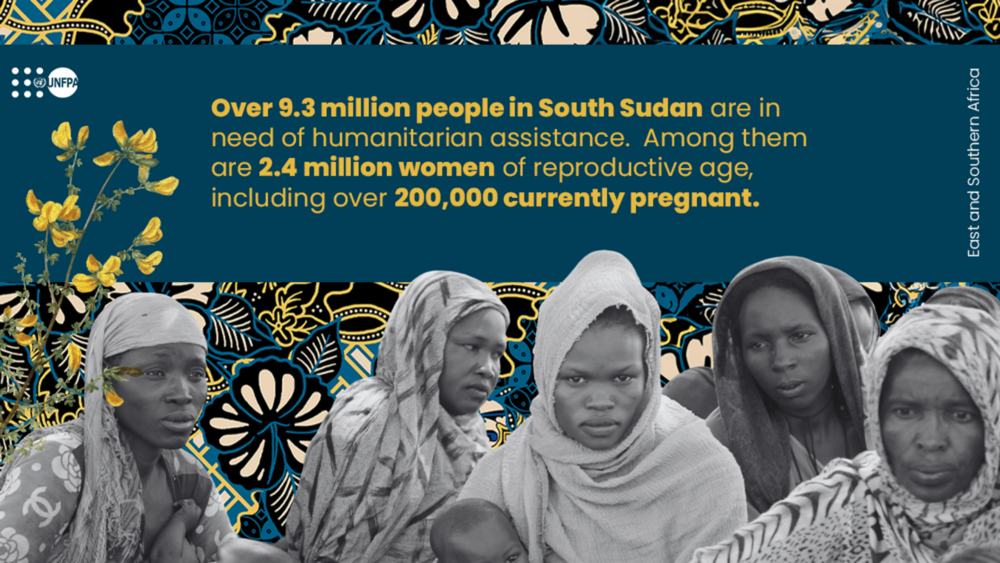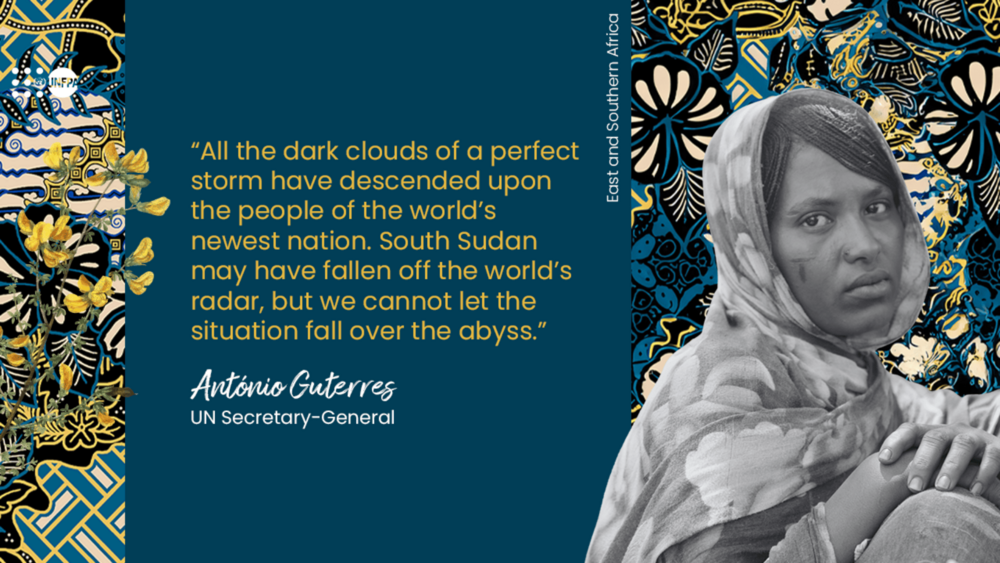By Lydia Zigomo
The people of South Sudan deserve peace — not fear.
Yet in recent weeks, we have seen the fragile calm unravel. Armed clashes, aerial bombings, and intercommunal violence especially in Upper Nile State are escalating dangerously. Political tensions have deepened, threatening not only the country’s hard-won stability but the very survival of its most vulnerable: women and girls.
This is alarming. Our teams are on the ground, witnessing the devastating impact firsthand. We are especially concerned by the sharp rise in gender-based violence, conflict-related sexual violence, and the collapse of essential health services. As in any crisis, it is women and girls who suffer disproportionately.

Over 9.3 million people in South Sudan are in need of humanitarian assistance. Among them are 2.4 million women of reproductive age, including over 200,000 currently pregnant. These women are navigating childbirth in insecurity, displacement, and without reliable access to health care. The risks are unimaginable.
No survivor of sexual violence should be denied care because a clinic was shut down due to insecurity.
No woman should have to give birth on the floor of an overcrowded shelter with no midwife in sight. No girl should be forced into early marriage as a coping mechanism. No survivor of sexual violence should be denied care because a clinic was shut down due to insecurity.
In Bentiu, we met young women who walked for hours through flooded plains just to reach a midwife. In Malakal, our mobile teams are providing care to displaced women in makeshift camps. In Nasir, a current flashpoint, we have prepositioned 3,000 dignity kits and 12 reproductive health kits, pending security clearance. These are not just supplies, they are a statement — we see you, we are here, and we will not stop trying.
UNFPA is delivering wherever and however we can. Five mobile health teams are serving remote communities with vital maternal and reproductive care. Seven Women and Girls’ Friendly Spaces offer survivors of violence not just support, but safety, healing, and solidarity. And across Akobo, Mingkaman, Wau, Juba, and Malakal, our supported health facilities continue to provide the Minimum Initial Service Package — the gold standard in emergency reproductive health care.

As UN Secretary-General António Guterres recently said, “All the dark clouds of a perfect storm have descended upon the people of the world’s newest nation. South Sudan may have fallen off the world’s radar, but we cannot let the situation fall over the abyss.” His words reflect what we see every day: a country teetering on the edge, where action cannot wait.
But even as needs grow, funding is vanishing. The 2025 Humanitarian Needs and Response Plan is only 10 per cent funded. Of the $8.8 million UNFPA requires for the next six months to meet urgent needs, we have received just $1.2 million. This gap is not abstract, it means fewer health workers, closed clinics, and missed chances to save lives.
To the international community, we cannot look away. Now is the time to lean in, to support those who are holding the line under impossible conditions. Every contribution counts. Every dollar brings us closer to the woman giving birth safely, the girl going back to school, the survivor finally receiving care.
We also call on all stakeholders and leaders to recommit to the peace agreement and uphold their responsibility to protect civilians. Dialogue must replace violence. Access for humanitarian workers must be guaranteed. And services for women and girls must never be negotiable.
Peace is possible. But it must be more than a political goal — it must be a promise kept to every woman who is tired of fleeing, every girl who dreams of more, and every health worker who refuses to give up.
South Sudan’s future depends on it.


